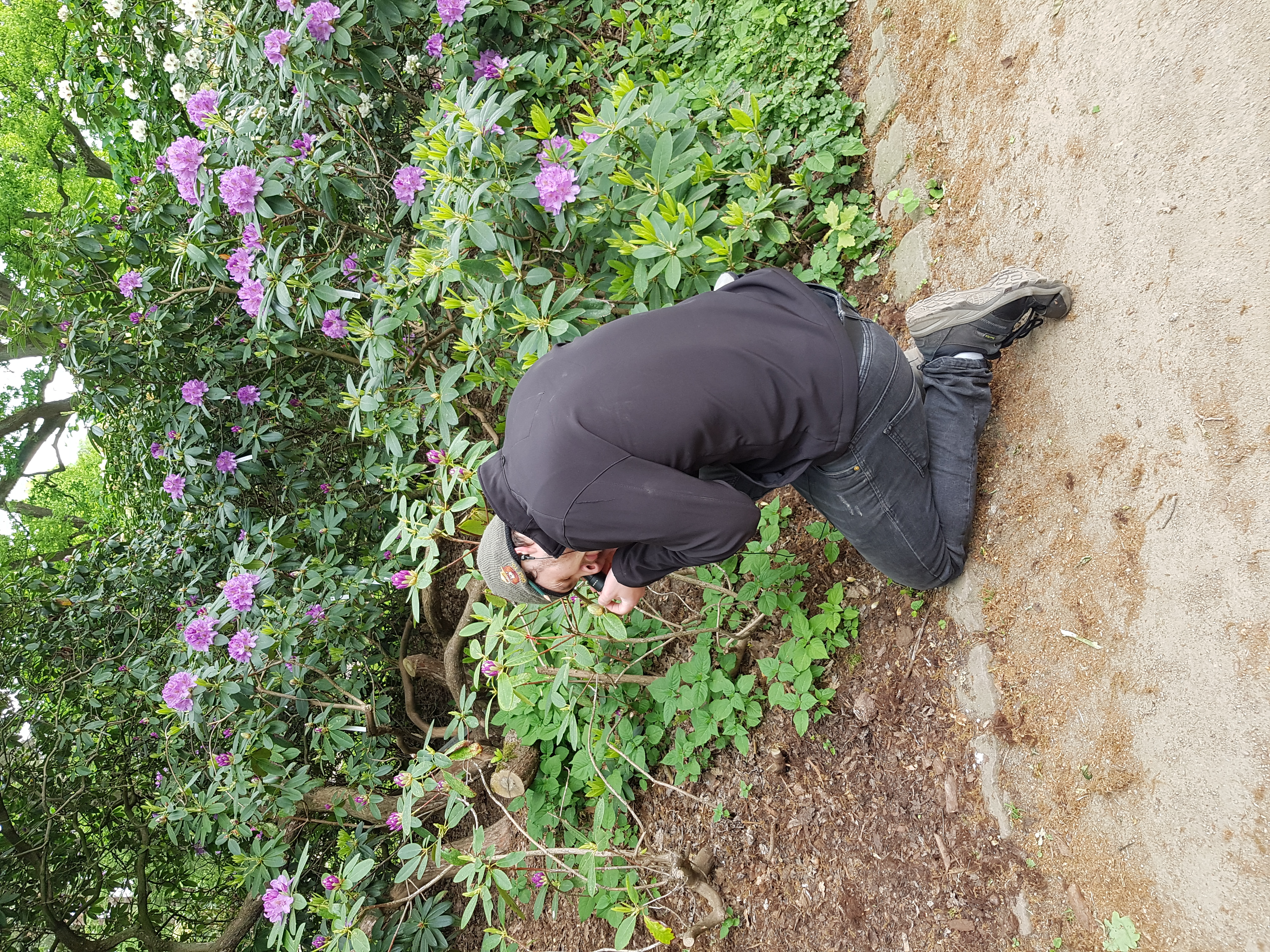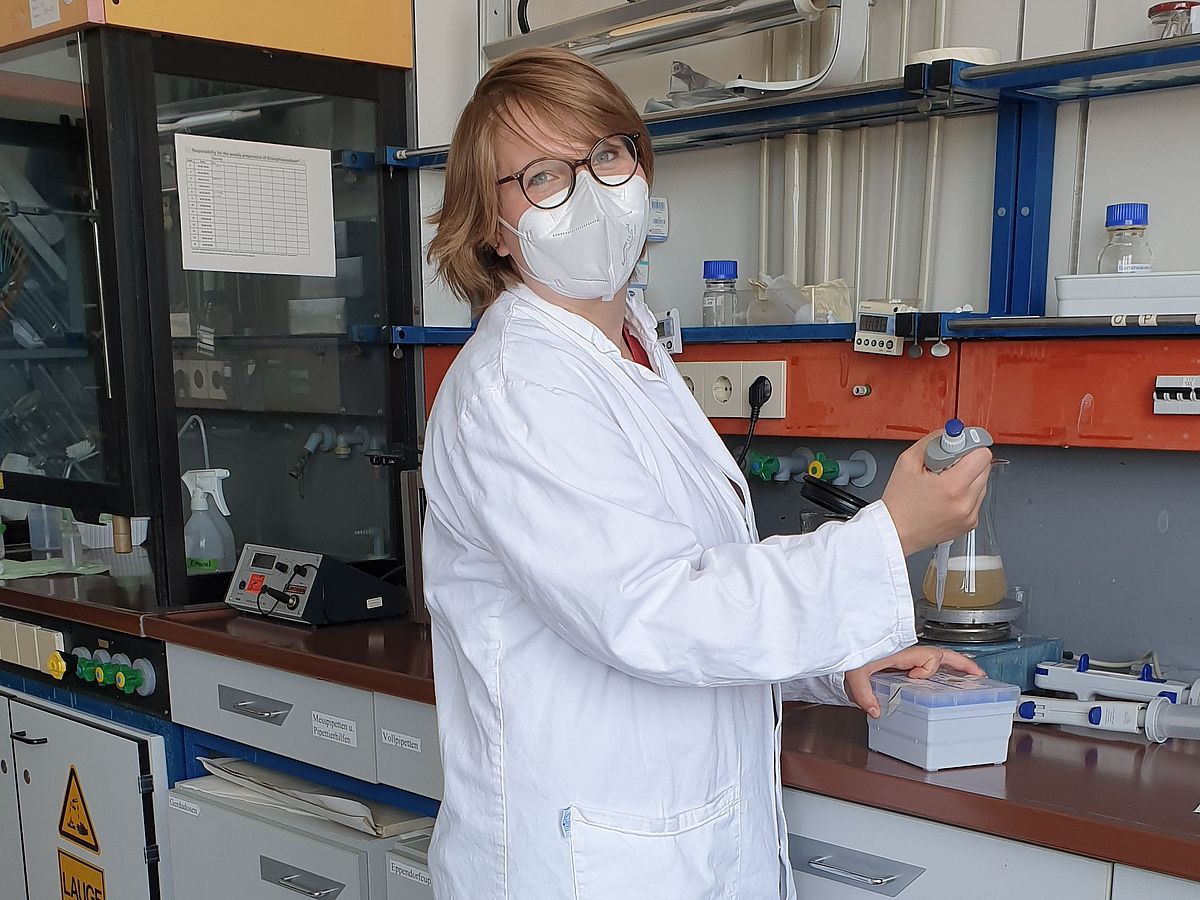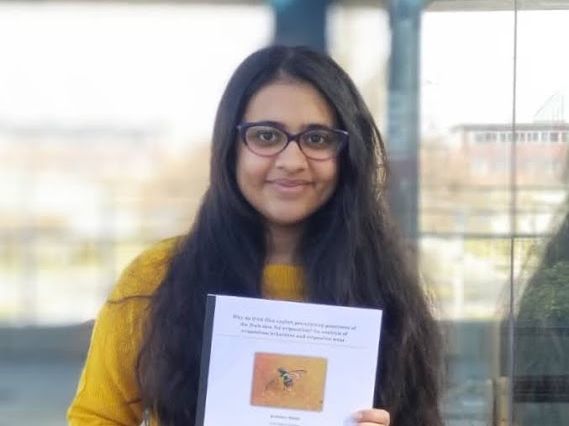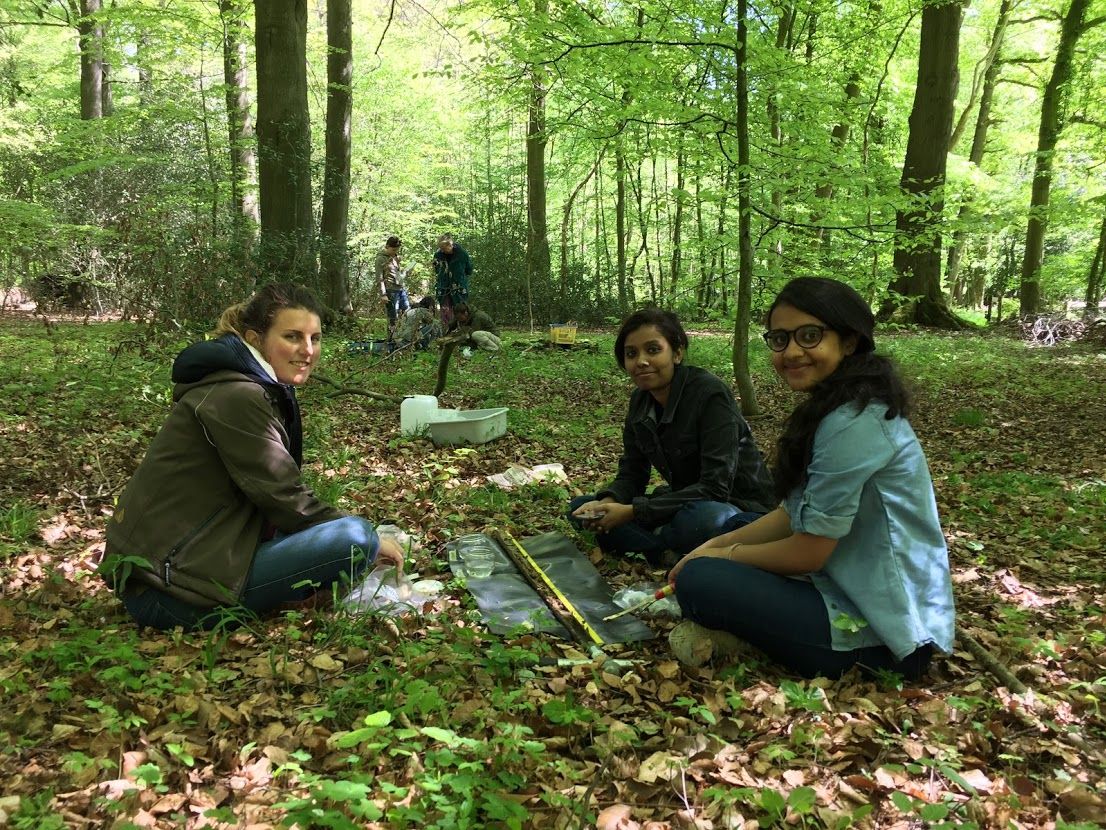Careers
Our alumni: personal experience and future perspectives
Alumna Elisabeth Riedel
PhD at University of Bremen
"Hello, my name is Elisabeth Riedel. I followed the MSc Ecology program at Uni Bremen for 2.5 years. I earned my master’s degree in summer 2020. Directly after, I started working on a PhD within the group for population and evolutionary ecology, supervised by Marko Rohlfs.
When I first joined the MSc Ecology program, I was especially impressed with the close contact and communication between students and professorial staff. Flat hierarchies ensure an open and positive learning environment. This supportive atmosphere is mirrored in the local mentality and the social life in Bremen.
The MSc Ecology program is an international program. This creates a place for broad academic and intercultural exchange. It brings together people from different countries, cultures and academic backgrounds. It gave me the opportunity to start forging my own network of international friends and colleagues.
With many practicals being organized in teams many soft skills are shaped ranging from communication, over team building to cultural awareness. These skills now come in handy when I am organizing experiments in cooperation with bachelor and master students from different personal backgrounds.
Especially the personal mentoring program helped me organize my courses and accomplish my goals. Choosing a professor as a personal mentor and talking through your career expectations, helps you not only to find the right partners here at Uni Bremen, but it also gives you access to the academic network of the respective professors.
The program offers a wide range of courses in the various fields of ecology. While the mandatory classes hand you the tools of the trade, focusing on data analysis and scientific writing, the elective courses leave room to explore your interests. Overall, I very much enjoyed my time as a Master student in the Ecology program here in Bremen, I got equipped with solid concepts, new scientific perspectives and methodological approaches."
Alumna Prachi Dadhich
PhD at University of South Bohemia
"Hi. My name is Prachi Dadhich. I completed my Bachelors in Zoology from Maitreyi College, University of Delhi, India in 2017. With a zeal to observe organisms in their natural habitat and capture their perfect shot, I made my mind to study how so many organisms are interconnected to each other and with the environment. Fortunately, I found the perfect Master’s program in Ecology offered by Universität Bremen, Germany.
From the very start, students and professors from this program were really welcoming. Before the official commencement of the course, an orientation week was designed to help the new students to get familiar not only with the University but also with the beautiful city, Bremen. This was a wonderful initiative, especially for someone stepping into a foreign land for the first time. This program is designed to give you the liberty of choosing the courses you are interested in studying. Most of the courses focuses on the practical implications of the ecological issues and models. This is achieved through theoretical lectures as well as practical classes and field excursions. One of the most memorable moments from this program was the field excursion/trip to the lovely Öland Island in Sweden. It was a beautiful yet highly knowledgeable trip. This was a great chance to learn about conducting experiments and observing the behavior of the organism in their natural habitats. We completed our first field study on the behavioral essay of Greylag goose. To continue my interest in studying animal behavior, I took one of the courses offered by Prof. Marko Rohlfs and Dr. Valentina Migani, Behavioural Ecology. I am so thankful that this course introduced me to the world of fruit flies. Further, I did two research projects and a master’s thesis on the oviposition behavior of polyphagous, invasive pest species Bactrocera dorsalis (fruit fly). Under the supervision of Prof. Dr. Thomas Hoffmeister and Dr. Valentina Migani, I successfully designed, performed, and analyzed the experiments at the Population Ecology and Evolutionary Ecology Lab in the quarantine facility. These experiments helped me to have a firm grip on lab management skills and scientific research.
Along with the freedom of working on your research topic and great supervision, we also had a Fly group. This group was a mixture of professors, Post-doctorate candidates, Ph.D. candidates, Masters and Bachelor students. This was an excellent additional support, where we use to discuss the projects, practice our presentation skills, give suggestions, and most importantly providing the reassurance that even if your project is not going anywhere it will all be alright in the end.
In conclusion, this program allowed me to learn about animal behavior from scratch and strengthen the important skills required as a researcher. It made me think and act like a scientist. I also made some great friends during this part of my life.
I was a Master's student from 2017-2020. Fortunately, I will be continuing my interest in studying insect behavior as a PhD candidate at the University of South Bohemia, Czech Republic. I will be studying the ecophysiology of the Bark Beetles. I will characterize the process of diapause induction in the field by dissection of the adults and recording the status of their internal organs."
Alumnus Nolan James Rappa
PhD student within the ConFoBi-Research Group at the Chair of Nature Conservation and Landscape Ecology, University of Freiburg
My name is Nolan Rappa. I received my Master degree in Ecology from the University of Bremen in 2019. Before enrolling in the international master study program, I finished my Bachelors degree in aquatic biology at SUNY Buffalo State college in the USA.
I learned about the master program during my time living in Bremen and visiting the University. I knew right away this would be something for me, with great benefit from international exchange and the flexibility to research in many different directions. Even before enrolling, professors were approachable and supportive of prospective students, providing advice and information that helped me to make my decision.
The study modules covered a breadth of ecology disciplines from food web ecology to molecular ecology. The instructors of modules placed great emphasis on the understanding and application of fundamental ecological theories, which is required for anyone planning an academic career. In addition, the study program included a robust statistics module which I have come to appreciate as invaluable.
During my time in the study program I came to appreciate the applied value of biocontrol, and the importance of seeking alternatives to pesticides in insect management. Field ecology and entomology focused courses in the program deepened my interest in studying insects. I therefore chose for my thesis topic to work with invasive insects in the Bremen Rhododendron park, testing a biocontrol agent as a possible pesticide alternative, under the advisement of Prof. Dr. Thomas Hoffmeister. I am grateful for the flexibility to choose a topic which I was passionate about, and to have learned so much during the process.
After completing the master program, I applied for and was accepted as a doctoral researcher at the University of Freiburg within the research training group ConFoBi. The knowledge I gained as a student in the international master of ecology program at the university of Bremen has been invaluable to me as an ecologist, and a researcher.
This program will help you discover your interests, and help guide you as those interests are developed into research questions. The methods and theories you will learn will help you on your way to seeking the answers to your research questions, and helping you develop yourself as a scientist and as an individual.




